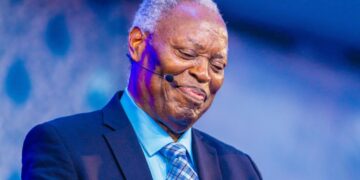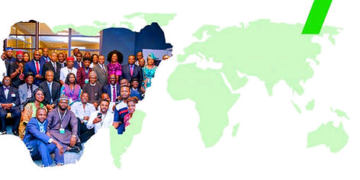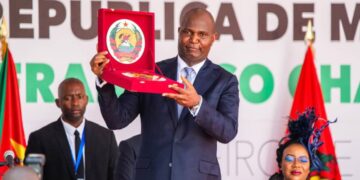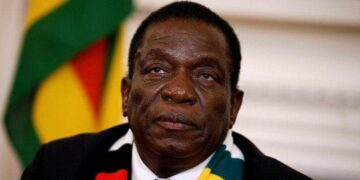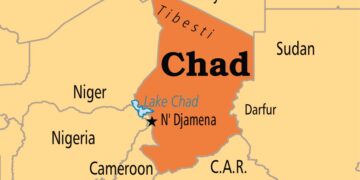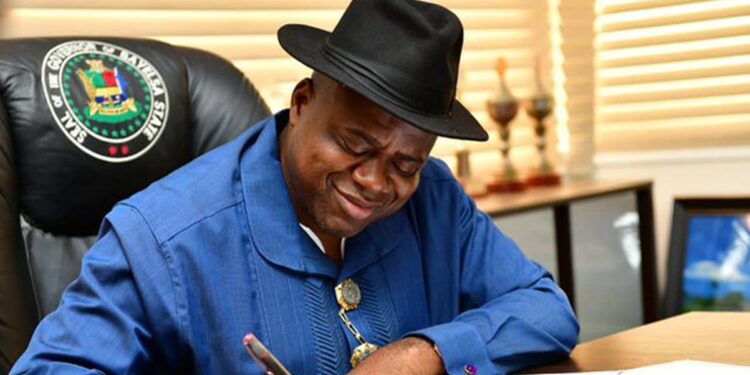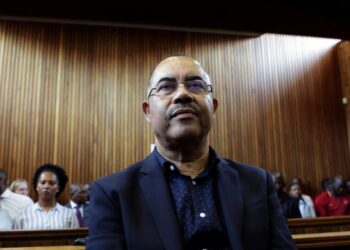Removal of State Governors from office through electoral jurisprudence, has become a child’s play in Nigeria. Nothing exemplifies this unwholesome development, than the recent ridiculous majority decision of the Bayelsa State Election Petition Tribunal which nullified the election of Governor Douye Diri upon a belated petition filed by the Advance Nigeria Democratic Party (ANDP), which claimed it was excluded from the 2019 election. Clearly, the majority Judges, the duo of Yunusa Musa, J., and Sikiru Owodunni, J., did a hatchet job that is made to look good! The jurisprudential rationale behind the removal of Governor Diri by the majority judgement of the Tribunal, defies all known laws and legal procedures. It is not only questionable and unreasonable, but shady and disgraceful. It is an outrageous debasement and bastardisation of the sacredness of the Judiciary, and magnificent authority of the Supreme Court.
Preliminary Facts
Election into the governorship seat of Bayelsa State, held on 16th November, 2019. INEC declared and returned Lyon David Pereworimin winner of the election on 17th November, 2019. Political parties and persons who felt dissatisfied with the outcome of the election, filed petitions against the return and declaration of INEC. While the petitions were pending, the Supreme Court, on the 13th of February, 2020 through a pre-election matter in Suit No. SC/1/2020 – Peoples Democratic Party v Biobarakuma Dei-Eremienyo & 3 Ors, nullified the declaration and return of David Lyon and ordered INEC to withdraw his Certificate of Return and that of his Deputy, and declare the person with the highest number of votes and geographical spread, who happened to be Duoye Diri, the winner of the election. By implication, all pending petitions against Lyon automatically abated by the Supreme Court’s unquestionable final pronouncement. They were accordingly withdrawn.
With the decision of the Supreme Court in Biobarakuma’s case and the refusal of the Apex Court to review same, one had thought all issues relating to the 2019 governorship election in Bayelsa State had finally been laid to rest. Of course, there ought to be an end to litigation. It is recalled, it was on account of this case that two foremost Nigerian Lawyers, Chief Afe Babalola, SAN and Chief Wole Olanipekun, SAN, were heavily penalised by the Supreme Court.
The case before the Tribunal was a pre-election matter regarding the validity or otherwise of the nomination of the candidate of ANDP, but was rail-roaded and transfigured into a post-election matter. The case ought to have been declared dead on arrival at the Tribunal. Most regrettably, the Tribunal unjustifiably assumed jurisdiction over a matter constitutionally reserved for the High court. The decision of the majority Judges itself constitutes an affront to the pre-eminence of the Supreme Court as the final court in the land, which already affirmed Duoye Diri as the duly elected Governor of Bayelsa State. What the majority judgement of the Tribunal did, in removing Governor Diri from office, was simply to undo what the Supreme Court had done. The action of the Tribunal, is nothing short of judicial recklessness and insubordination. It is indictable and condemnable, as it is capable of introducing chaos and anarchy to administration of justice.
Queries
Which election are we really talking about? Was it the November 16, 2019 election or was there another election? It is on record that the petition was filed on 26th February, 2020 – three whole months after a declaration was made by INEC on the election!!! It is important to note that ANDP’s petition was not against the declaration and return made by INEC, or alleged malpractices at the election or invalid votes cast, but the party’s exclusion from the 16th November, 2019 election. Where was ANDP in all those days between November, 2019 when it was excluded from the election and February, 2020 when it filed its petition. What cause of action was it pursing? When did the cause of action arise? These and other sundry questions render ANDP’s petition and the tribunal’s adjudication over same, suspect and disturbing.
More relevant facts
Certain facts about the case remain indisputable. The Petitioner, ANDP, sponsored Lucky King-George as its governorship candidate at the 2019 governorship election in Bayelsa State. His name was submitted with that of David Peter Esinkuma, as his running mate. INEC found the nomination of King-George defective because, his running mate, Peter, was underaged. He was 34 years old, as against the constitutional age requirement of 35 years. On September 13, 2019, INEC, in consonance with its constitutional duties, wrote the party, ANDP, drawing its attention to the constitutional affliction of its candidate. INEC’s power to do this, is not in doubt. Paragraph 15 (a) of the Third Schedule to the Constitution, empowers INEC “to organise, undertake and supervise elections.” Having regard to the ordinary lexical meanings of the words used in paragraph 15 (i) of the 3rd Schedule, there is no way INEC can function effectively without being able to carry out rudimentary administrative screening of a candidate’s electoral qualification requirements, in order to satisfy itself that such particulars as presented are in conformity with the provisions of the Constitution. This, clearly, was the essence of INEC’s letter of September 13, 2019. It was not a disqualification per se, but an administrative step taken by INEC to draw the attention of ANDP to the constitutional deficiency of its candidate.
ANDP did not take advantage of the benevolence of INEC’s letter of September 13, 2019. It was not until 21st September, 2019 that the ANDP forwarded the name of another underaged deputy-governorship candidate, one Miss Inowei Janet, as substitute for David Peter. The fact that Janet was also underaged, was not contested. The point duly established before the Tribunal was, as at 21st September, 2019, when Miss Janet’s name was submitted as a substitute, it was no longer possible to make a new nomination for the position of the Deputy Governor. This fact was communicated to ANDP through a letter dated 27th September, 2019. INEC wrote to the Petitioner stating that the deadline for submission of nominations, had expired. INEC’s letter further notified ANDP that, in the circumstance, the name and logo of the party would not appear on the ballot. ANDP, upon the receipt of the letter responded, vide another letter dated 3rd October, 2019 urging INEC to rescind its decision. INEC, appropriately, did not. The election, therefore, held on the 16th November, 2019, without the logo and the name of the party on the ballot, and rightly so, as there was no valid nomination of a governorship candidate by ANDP.
From the foregoing, the core issue before the learned Tribunal was the validity or otherwise of ANDP candidate’s nomination: was the candidate of the Petitioner validly nominated to contest the Bayelsa State governorship election of November 16, 2019 or not? For some inexplicable but curious reasons, the majority judgement failed to identify this crucial issue. It proceeded on a wrong course, blindly, in my view, by ascribing prominence to ANDP’s allegation of exclusion.
Section 138(1) (d) of the Electoral Act, upon which the petition was predicated, permits an election to be questioned on the ground that the Petitioner or its candidate was “validly nominated, but unlawfully excluded.” Basically, a candidate must be validly nominated in order to be eligible to contest an election. The position of the majority judgement, affirming INEC’s letter of 13th September, 2019 as a disqualification of the Petitioner’s candidate, buttresses this fact. A suit arising therefrom will pass as a pre-election matter within the meaning of Section 285(14) (c) of the 1999 Constitution, as amended by the Fourth Alteration, which defines a pre-election matter as “a political party challenging the actions, decisions, or activities of the Independent National Electoral Commission disqualifying its candidate from participating in an election”. Such a suit is constitutionally required to be filed within 14 days from accrual of a cause of action, which in this case, ran from 27th September, 2019 when ANDP was informed of the fact that its name would not be included in the ballot. Section 258 (9) of the Constitution refers.
The learned Tribunal gravely erred in treating ANDP’s case as a post-election matter, cognisable by it and also holding that Section 285 (14) is inapplicable. Nothing can be more perverse. Upon the receipt of INEC letter of September 27, 2019, it was open to ANDP to proceed to challenge the decision of INEC on the matter. The party did nothing. Janet’s name was submitted outside the window of substitution, as demonstrated through INEC’s letter of 27th September, 2019. The majority Judges deliberately shut their eyes to the content of the letter, and erroneously found that Janet was substituted within time!
Conclusion
The dissenting judgement of Justice Muhammad I Sirajo, J., is commendable. His Lordship came out boldly and resisted the misguided but avoidable errors, questionable postulations and pontifications of his learned brothers. His dissenting judgement is an illustration of judicial courage and steadfastness, as against the shenanigans, chicanery and vulnerability or timidity demonstrated by their lordships, the duo of Justices Yunusa Musa and Sikiru. M. Owodunni that delivered the majority judgement.








